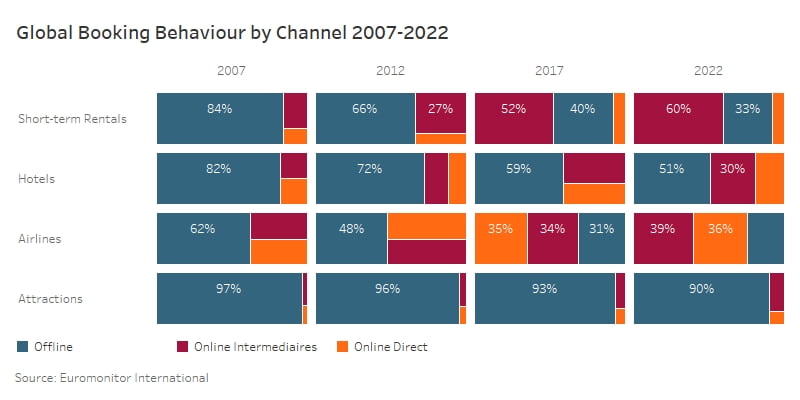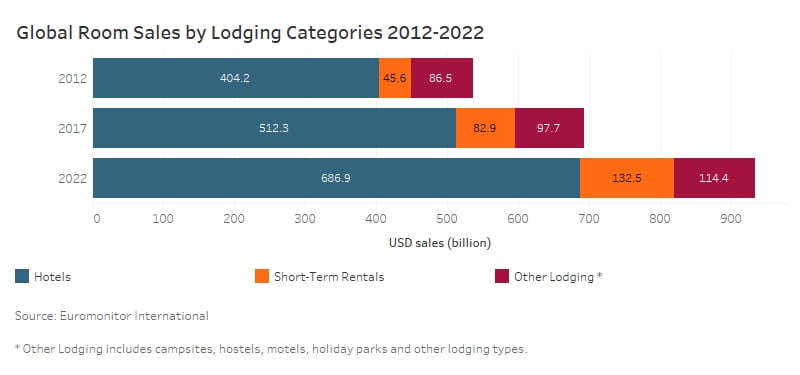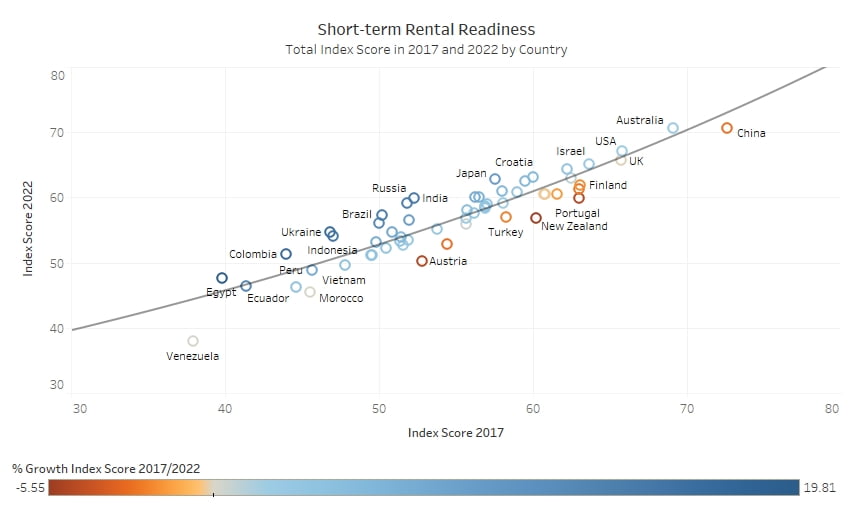



Since the emergence of the internet in 1991, travel has changed and continues to evolve very rapidly. Initially, online travel agents, despite ushering in new opportunities for the hotel business, this new digital landscape disrupted the established relationships between travel agents, hotels, and Global Distribution Systems. Recently, companies like Airbnb represent the new disruption of the hospitality industry.

It is difficult to imagine the hospitality and travel industries without the disruption of short-term rentals. Although the concept of short-term rentals is not new, they typically were informal and unregulated. Thanks to the internet, companies like Airbnb can easily transfer this mode of exchange onto an online marketplace.
Notably quite different, hotels and short-term rentals will naturally lead to different booking behaviors. Despite the upsurge in the short-term rental market, the overall lodging industry is booming, and thus, the hotel industry is benefitting. This is forecasted to last, however, it is uncertain.

Access Economy Index
Short-term rentals place a role in the Access Economy, a business model that gives customers access to goods and services rather than outright ownership. The Access Economy revolutionized the travel industry.
The recent Euromonitor Access Economy index scored 58 countries based on their potential for sustainable growth in short-term rental supply and demand. The index takes into consideration the following:
- Digital infrastructure (home and mobile connectivity)
- Destination ratings from World Economic Forum
- Urban and millennial populations, and homeownership
- Regulation
- Inbound and domestic flows and expenditure
In 2017, the combined GDP growth, booming domestic tourism sector, and a favorable legislative stance allowed China to exceed all other countries in the Access Economy Index. However, by 2022, thanks to a well-developed digital infrastructure, an established short-term rental offering, limited existing hotel stock, and a strong forecasted performance for inbound and domestic arrivals, Australia took the top spot.

Regulation and legislation
The Access Economy Index considers various regulatory situations. Although many countries lack national short-term rental legislation, the city level can be more extensive. Cities must try and balance an influx of tourists, hotel lobbies, and housing crises.


